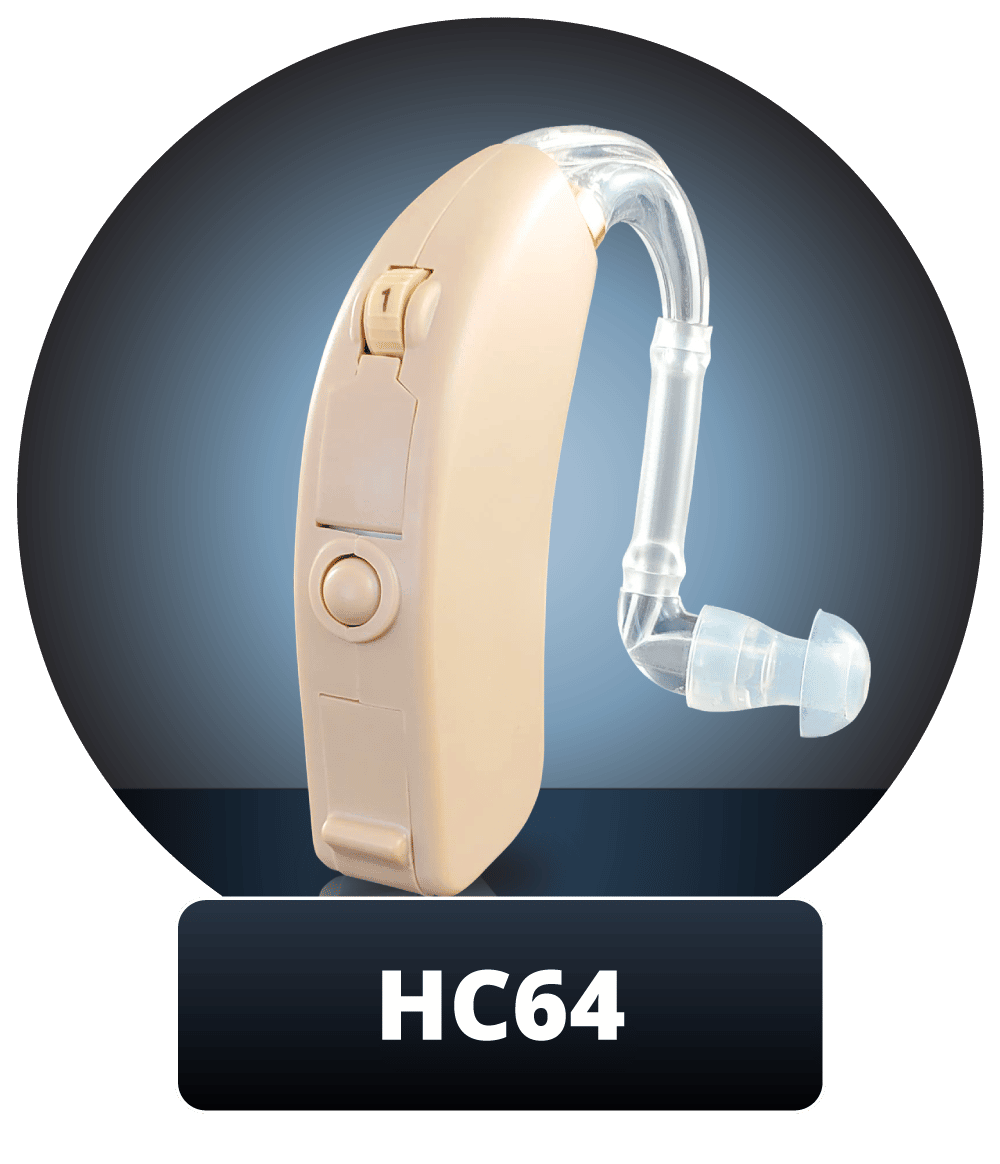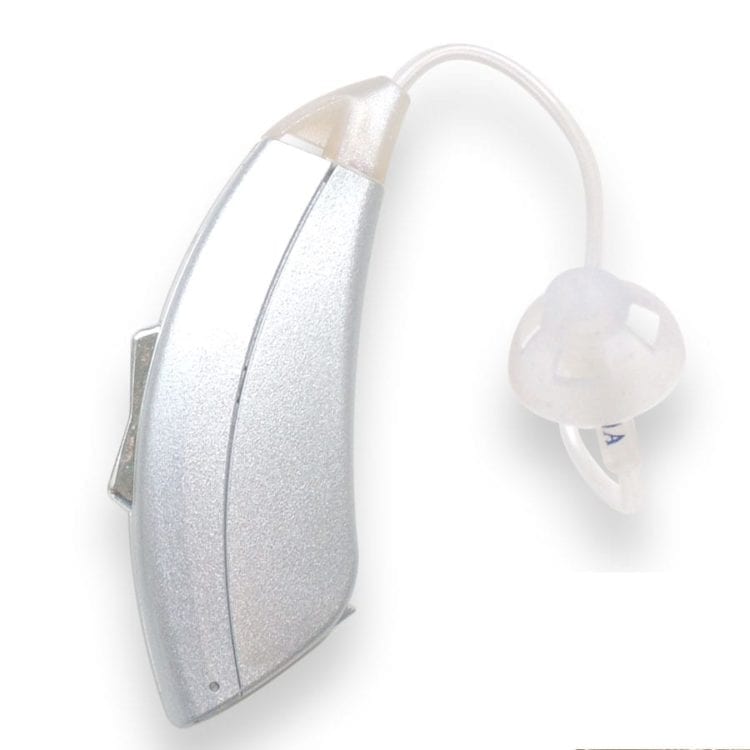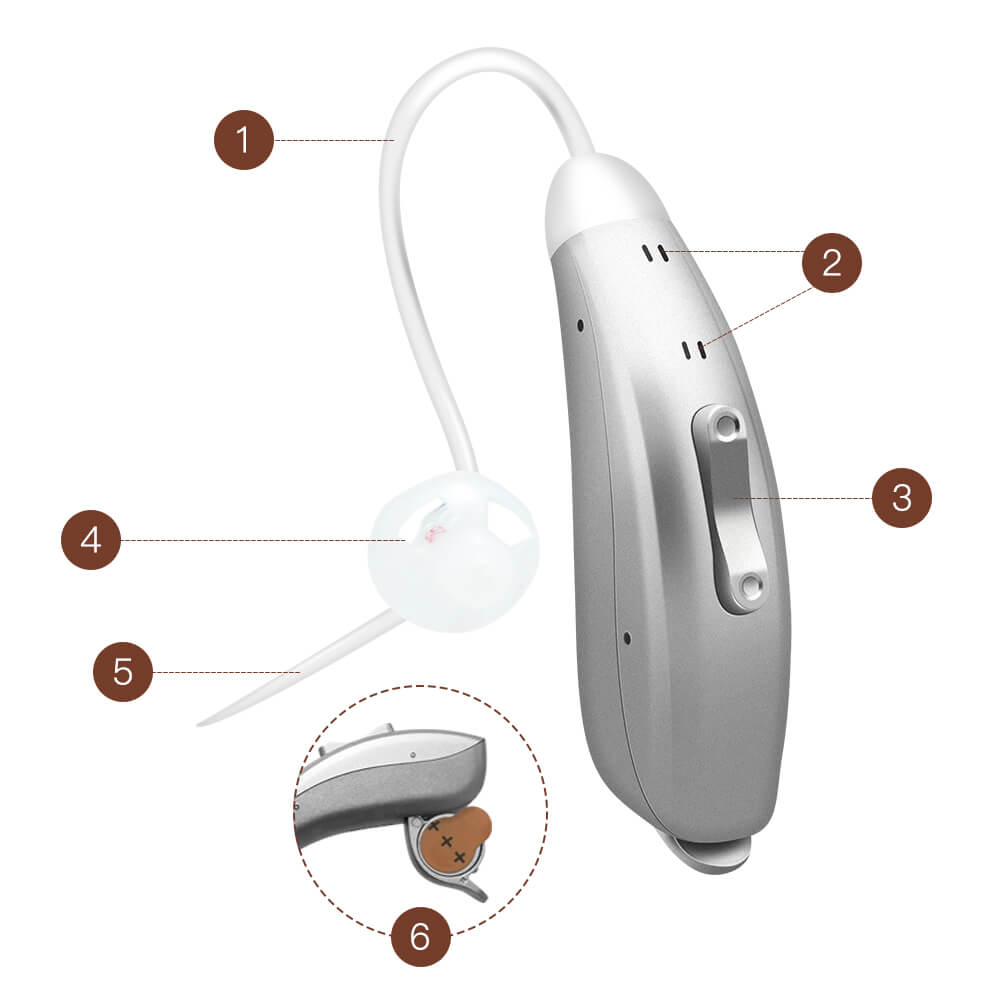Dont Settle For Hearing Aid Feedback
Hearing aid feedback is annoying and obtrusive, and if its happening frequently, you shouldnt have to simply deal with it. If youre sure the hearing aid is fitted and inserted correctly, there could be a deeper issue with your device. When in doubt, visit a hearing aid specialist to get your device working smoothly once again.
How Do I Know If My Hearing Aid Is Working
Make sure that your hearing aids are turned on, and the batteries are correctly placed. Your hearing aid usually turns on once the battery doors are closed if you have trouble closing them, it means the battery is placed upside down. Try removing the battery, flipping it out, and reinserting it correctly.
Hearing Aid Is Not Producing Enough Sound
Read Also: Signs Of Hiv Medication Resistance
Why Are Earaches So Common In Kids
Part of the reason kids have more issues with their ears in recurring ear infections and also some Eustachian tube dysfunction is because their Eustachian tube isn’t fully developed yet, Dr. Hoffmann says.
For kids, the way the tube is angled makes it more likely theyll develop an ear infection and have fluid in their middle ear space after an upper respiratory infection, she says.
The good news: As kids get older, they grow out of this tendency, as the angle of their Eustachian tubes shifts.
Theres another key reason why children are more likely to get ear infections: Their immune system is still developing and isnt as well-equipped to ward off infection.
The Irritating Phenomenon Of Hearing Aid Feedback

So you probably recognise the situation, you are sitting there minding your own business and then someone turns to you and says your hearing aid is whistling. The shock and horror sets in. Or, you lean in to hug someone you love and suddenly there is an ear-splitting squeal. While this was a once a normal part of wearing a hearing aid, it isn’t really any longer. Modern hearing aids should not generally whistle, however, there are times that it may still happen. Let’s talk about feedback, what it is, how it happens and what may be causing it. Welcome to the world of hearing aid feedback.
Also Check: Can You Get Hiv Oral Sex
Hearing Aid Feedback Problems Less Likely With Newer Devices
The likelihood of hearing aid feedback occurring has decreased in recent years because todays digital processors are designed to control it, Dr. Estes said.
Feedback with the new technology rarely happens in mild to moderate hearing loss cases, she said. If the device is working properly, fits well and the sound waves are going into the eardrum, then you wont have that problem.
Can Feedback Be Managed
Yes! Most current hearing aid technology offers a feedback management system that makes whistling a thing of the past. The system is typically run during the initial fitting process or any time a modification or repair is complete.
At Starkey Hearing Technologies, we pride ourselves on our industry-leading feedback management system. We use a complex system of phase cancellation to identify possible situations where feedback may occur, and create a signal opposite in phase to eliminate that feedback.
In addition to the feedback management systems present in todays technology, your hearing professional can also make changes to your hearing aids output and gain , which can be beneficial in the elimination and prevention of feedback.
However, there are situations in which feedback may occur for reasons outside of the device itself.
Also Check: Are Rapid Hiv Tests Accurate
When Should This Become A Concern
Feedback can occur moving a certain way while using hearing aids, like hugging a person. You may also experience hearing aid feedback when putting in or taking out your hearing aids. This type of feedback is normal, though, as long as it only happens when something triggers it. There’s reason for concern if feedback is more frequent and random. It may mean your hearing aids need cleaning, repair, or a change in the settings.
Reasons Why Your Hearing Aids Are Whistling And What To Do About It
by Widex
Hearing aids whistle sometimes, just like your phone sometimes does when its too close to the radio. If you wear hearing aids, youre going to experience whistling at some point. It can happen through something as simple as putting on a scarf. The whistling is called hearing aid feedback. Heres what causes it and what you can do about it.
Read Also: What Is Hiv Positive But Undetectable
Why Does My Hearing Aid Whistle
- Date: August 15, 2018
Hearing aids can greatly improve the quality of life for people with hearing loss. For those who struggle to follow conversations, cant hear the TV at the same volume as others in the household, or avoid going out because it is too hard to socialize, hearing aids can be a life-saver. However, when hearing aid wearers experience high-pitched whistling from their devices, they may begin to doubt the benefits.
How To Fix Feedback Problems In Hearing Aids
Many high-end hearing devices are outfitted with feedback suppression systems to prevent these problems from happening. If your device is making these noises regularly, it can be helpful to identify the type of feedback to fix the problem.
In general, hearing devices can give off three different types of feedback:
- Acoustical feedback. Acoustical feedback is generally caused by a blocked microphone or ill-fitting device. If cleaning both your ears and your device does not stop the feedback, the direction of the receiver may be off. Your hearing care provider can adjust the speaker placement of your device and ensure a snug fit.
- Mechanical feedback. This type of feedback is caused by contact between the hearing aids casing and speaker, which are then transmitted back to the microphone. This problem should only be corrected by a hearing health professional, as it involves changing the placement of the speaker.
- Electronic feedback. Electronic feedback is a result of a malfunction in the computer components of the device. The solution involves opening the case and determining the source of the problem and possible replacement of the electronics of the device, and should only be attempted by a hearing device specialist.
| Related Links: |
Don’t Miss: Golf Training Aids That Work
When Should You See A Doctor For Ear Pain
That depends.
Ear pain is very common, Dr. Hoffmann points out. And some occurrencessuch as barotrauma while on an airplaneare relatively fleeting.
Some signs you should visit the doctor include vertigo, fever, hearing loss, discharge, or persistent pain. In most cases, a primary care doctor can help, but in more complicated cases, you may be referred to an otolaryngologist.
If it’s something that occurs very infrequently, and is not severe and doesn’t last very long, it’s probably nothing to worry about, she says.
Why Do My Hearing Aids Squeal

There are many reasons why hearing aids may squeal or whistle. Tune in to understand why it exists and what to do about it.
Hi, I’m Jim Cuddy and this is Ask The Hearing Doctors. And I’m joined today by Dr. Jenna Valania, doctor of audiology with Hearing Doctors. The Washington DC area’s highest-rated audiology practice with over 1500, five-star reviews. Jenna, as always great to see you. Thank you so much for having me. Absolutely.
So my hearing aids are squealing, why do my hearing aids squeal?
What a phenomenal question that you have, as do a lot of our patients. So sometimes we have patients that they’re just like Im sitting at my kitchen table, I don’t hear anything but my wife is hearing this high-pitched squeal or Im sitting there and I’m trying to have a conversation with my husband or my partner and all I’m hearing is squealing as I’m talking, what is going on? Is this an easy fix? Are the hearing aids broken? Let me tell you the hearing aids are not broken. There are a lot of reasons why the hearing aids could be squealing and the best place to start is by scheduling a quick visit with us.
Okay now are there things that you should be looking out for on your own before maybe you make that visit?
Are there specific types of sounds that are likely to feedback? Say high and low frequencies?
Is there ever an instance where that squealing or whistling sound is normal?
Recommended Reading: Can I Get Hiv From Sucking Dick
What About The Oticon App
Nearly all of Oticons hearing aids can connect via Bluetooth to the Oticon ON mobile app. This free app is available for both iOS and Android devices, including the Apple Watch.
With the Oticon ON app, you can adjust your hearing aids volume, keep track of how frequently you use your hearing aid, and stream music or audio directly to your hearing device. Oticon ON also integrates with IFTTT, which lets you set up if this then that controls for all of the internet-connected devices in your home. So, for example, you can program your hearing aid to turn on whenever the television turns on.
Recommended Reading: Sign For Poop In Sign Language
What Is The Whistling Sound I Sometimes Hear Through My Hearing Aid
- Date: August 2, 2018
The squealing or whistling noise that hearing aids sometimes make is called feedback. You may have heard this type of screeching or loud tone if you have ever spoken through a microphone while standing too close to the speaker system. In a hearing device, feedback is created when the sound coming out of the hearing aids speaker is directed back into the microphoneand unlike a handheld mic, you cannot simply move the two further apart.
Also Check: What Is Hiv 1 And Hiv 2
What It Means When A Hearing Aid Starts Squealing Or Screeching
- Date: August 16, 2018
You love almost everything about your hearing device. You can pick up on sounds you had nearly forgotten about: birds chirping, bees buzzing, and other low, tranquil noises. However, theres one new sound you could easily do without: the squealing noise that sometimes occurs when you adjust or remove your hearing aid.
Tips To Avoid Beeping Sound In A Hearing Machine:
- Recharge your hearing aid batteries properly and also replace them when in need.
- If your device is not functioning or damaged then book an appointment with your hearing care professional. The professional guides you about your hearing machine. He also takes a look at your device and sees if its broked, split or have some other problem.
- One can also refer to the user guide that came with your hearing aid.
- Turning down the volume on your hearing aid can also help with this issue.
- Hearing machine should be fitted properly in your ear.
You can purchase the latest hearing aids at a fair price through HearingSol, If you need more information or you have a query about Hearing Aid or Hearing Loss, just give us a call on +91-9899437202. We are always here to help you.
Read more:-
Also Check: How To Teach Yourself Sign Language
Read Also: How Often To Get Tested For Hiv
Basic Principles Of Acoustic Feedback
In this age of ubiquitous electronic amplification, it is often observed that if a speaker using a public address system in a conference room or an auditorium stands too close to the loudspeaker, then a loud and obnoxious squeal may occur. This is acoustic feedback. A portion of the sound coming from the loudspeaker has been picked up by the microphone, has been amplified, and then radiated back into the room. This situation is shown diagrammatically in Figure 1. Part of this amplified signal is picked up by the microphone, is re-amplified, and is subsequently re-radiated into the room where it is again picked up by the microphone, and so forth. This repeating cycle of sound amplification, radiation and pickup continues until the system is no longer stable and oscillation occurs. The audible manifestation of this instability is a loud and overwhelming squeal. This sound is obnoxious and is irritating to both the speaker and the audience.
Example of acoustic feedback in a public address system.
ITE hearing aid placed in the ear, showing potential acoustic feedback pathways through the vent and through slit leakage.
In summary, it can be seen from this fundamental description of feedback that several conditions have to exist for acoustic feedback to occur and be sustained in a hearing aid:
Oticon Features And Tools
The number one thing that differentiates Oticon hearing aids from other manufacturers is the companys use of noise-canceling technology. The new More hearing aid has a built-in neural network trained on over 12 million sounds, enabling it to decide what noise to amplify and what to eliminate. That reduces the effort of following conversations and results in 15% better speech understanding compared to the Opn S.
While the Opn S and older models dont have a neural network, they also offer Oticons BrainHearing technology. This scans your surroundings 100 times per second to differentiate noise from conversation and eliminate chatter.
Recommended Reading: Sign Language Hungry
Also Check: Does Hiv Have Any Symptoms
My Hearing Aids Sound Funny Or Distorted
Guide To Coping With Hearing Aid Feedback

Contributed by Debbie Clason, staff writer, Healthy HearingLast updated February 20, 20202020-02-20T00:00:00-06:00
Todays hearing aid technology makes it possible for many with hearing loss to enjoy their favorite sounds again. Whether its hearing the laughter of loved ones, a favorite melody or the sounds of nature, hearing devices can have a dramatic impact on our quality of life.
Properly fitting hearing aids in your earsis key to avoiding feedback.
Unfortunately, these technological wonders arent without their social stigmasone of which is hearing aid feedback. No one wants to wear something that calls attention to itself by emitting a high-pitched squeal or whistling sound.
If thats whats keeping you from treating your hearing loss, read on. Todays hearing devices are much less likely to produce feedback.
And when they do, its often very simple to fix the problem.
You May Like: How Does It Take For Hiv Symptoms To Show
Hearing Aid Feedback Managers
Most modern hearing aids have very good feedback managers which ensures that for much of the time whistling is a thing of the past. Both Phonak and Starkey are recognised as offering the very best Feedback Management systems. However, there is always a however right! Sometimes even modern hearing aids might whistle. Before I explain why I want to explain why modern hearing aids whistle less.
In modern hearing aids the feedback management system, a hearing aid feature that you can read about here, is set during the fitting. The Professional can see the chances of feedback happening and whether or not there is enough amplification before feedback to suit your hearing loss. At that stage, if there isn’t enough amplification they will change the fitting in your ear, be it a tip or a mould.
Once that is done satisfactorily, there should be no possibility of feedback unless something changes. Usually, that means a physical change, which brings me onto.
What To Do If Your Hearing Aid Starts Whistling
Whistling is an unpleasant noise in many contexts, but your hearing aid whistling might be a sign that something is wrong. Multiple things can cause hearing aids to whistle, but all of them are solvable
Hearing aids
Many people cringe when they hear unpleasant noises, whether it’s the screech of a chair or a loud noise in a song. For those with , a sudden, abrupt whistling sound in your hearing aid can be caused by a number of things, including mundane actions like giving someone a hug. While some of these whistles might mean your hearing aid needs repairing, others can be solved with simple adjustments.
Don’t Miss: Non Reactive Hiv Test Result